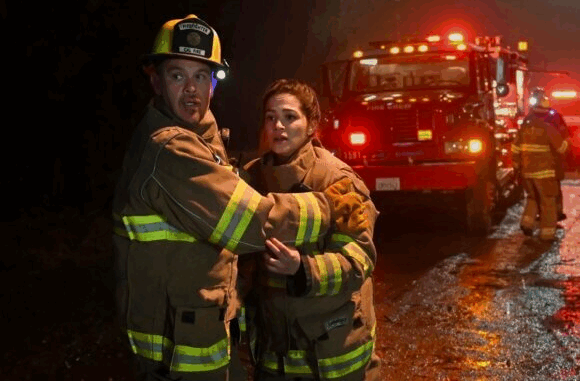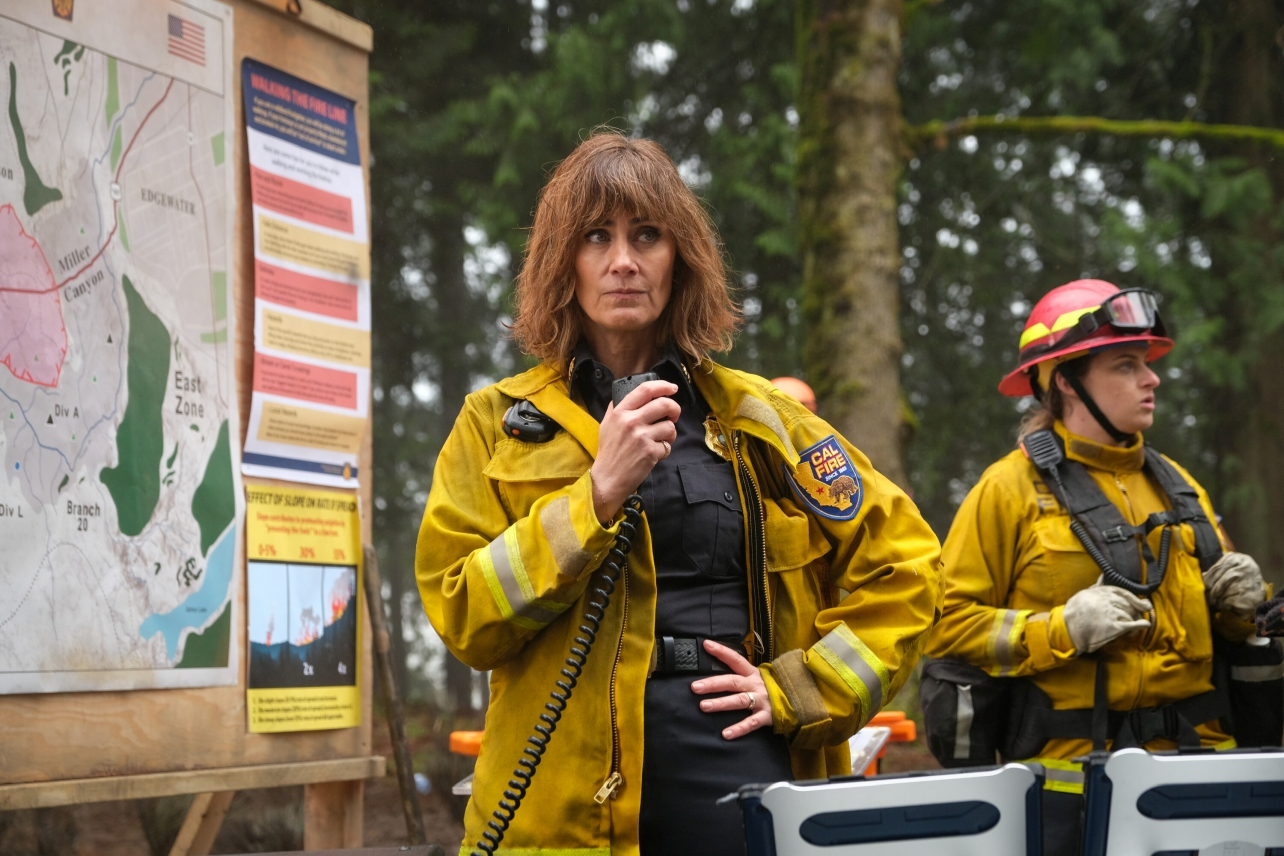
When Blood Is Thicker Than Fire
One of the most poignant and relatable themes in Fire Country is family — not the idealized kind, but the messy, guilt-ridden, aching kind. It’s a show built on second chances, and nowhere is that more raw than in the story of the Leone family.
The complicated triangle between Bode, his father Vince, and his mother Sharon creates the emotional spine of the series. Each of them loves fiercely. Each has made mistakes. And each struggles with the weight of that love when it hurts more than it heals.
This isn’t just a family drama. It’s an emotional inferno — where forgiveness is the hardest thing to give, especially to yourself.
Vince Leone: Duty and Distance
As battalion chief, Vince (played by Billy Burke) represents authority — and emotional suppression. He’s a man who has buried his grief under decades of discipline, and when Bode returns as an inmate, his reaction isn’t joy. It’s pain.
Vince blames Bode for the accidental death of his daughter — Bode’s sister Riley — and that grief is like a third rail in their relationship. He doesn’t yell. He doesn’t hit. He just withholds. Love becomes conditional, and his stoicism serves as both armor and weapon.
But Vince isn’t a villain. He’s just a father too heartbroken to know how to heal.
His journey in Fire Country is about learning to reopen a heart that grief has frozen.
Sharon Leone: The Heart That Holds Everyone Together

Sharon’s role goes beyond her title as fire chief. She’s the emotional core of both the Leone family and the Three Rock inmate program. She believes in second chances, because she’s had to fight for hers — as a woman in leadership, as a mother to a troubled son, and as a patient battling kidney failure.
Her love for Bode is unconditional, but not blind. She sees his flaws, challenges him to grow, and fights every day to keep the family from fracturing beyond repair.
Her health struggles also make her more human. She’s not a superhero. She’s a leader who’s scared to die before she sees her son become the man she knows he can be.
Bode: Haunted by the Past, Hungry for Redemption
Bode carries guilt like a second skin. His anger, impulsiveness, and recklessness are just masks for deeper wounds — including the loss of his sister and his estrangement from his father.
What makes Bode compelling is his refusal to give up. Even when Vince pushes him away, even when the system lets him down, even when love becomes too painful to bear — he still shows up. He fights fires. He earns trust. He tries again.
He’s proof that healing doesn’t come from being forgiven — it comes from doing the work, every single day.
Family as Fire: Beautiful, Brutal, and Transformative
Fire Country redefines what it means to love your family. It’s not about holiday dinners or Instagram-worthy hugs. It’s about staying when it’s hard, apologizing when it’s harder, and learning to let go of who someone used to be.
The Leone family’s dysfunction isn’t exaggerated. It’s real. And that’s why it resonates. Their fights are layered with trauma. Their silences are heavy with everything they don’t say. But in between all that pain, there’s love — fierce, unspoken, unshakable love.
And that’s what makes their journey worth watching.
Conclusion: Love, Forgiveness, and the Long Road Home
In Fire Country, fire is both a literal and metaphorical force. It destroys, but it also cleanses. It forces characters to strip down to who they really are. For the Leones, that means confronting decades of hurt, shame, and grief.
But it also means rediscovering love — not the perfect kind, but the real kind. The kind that stays through the heat, through the pain, through the worst of it all.
Because at the end of the day, Fire Country reminds us: there’s no greater rescue than healing the people who matter most.
